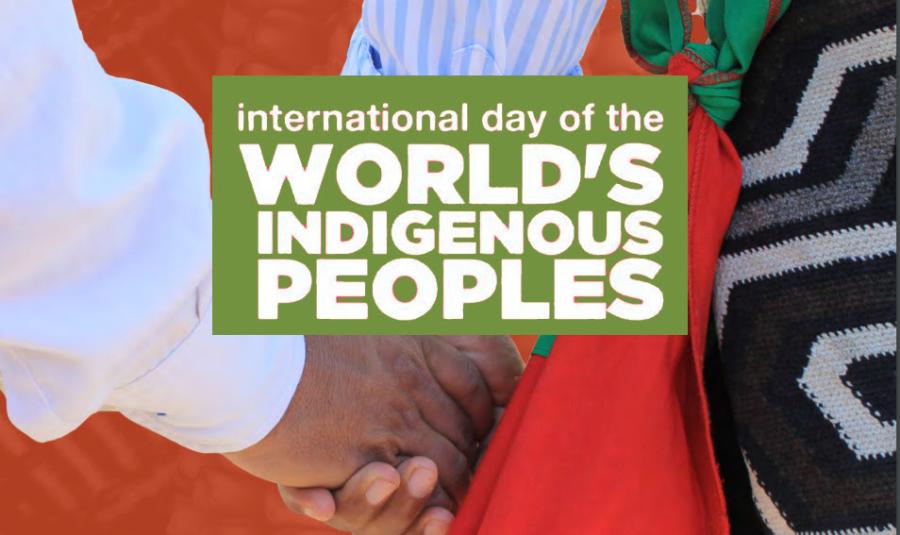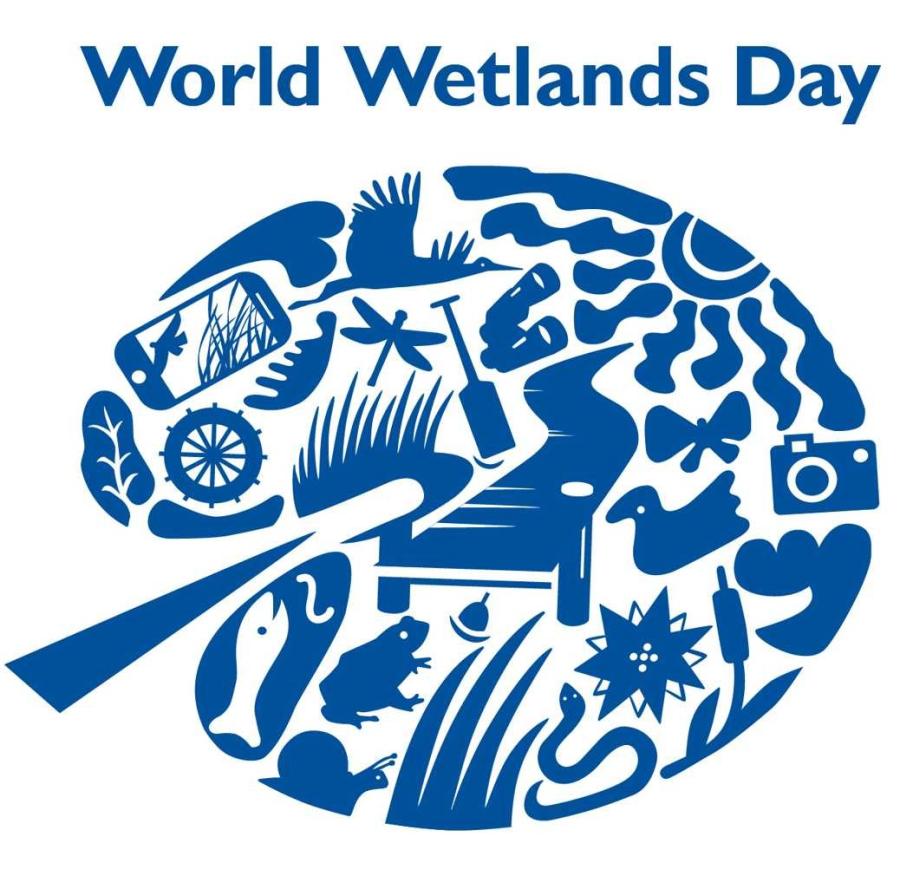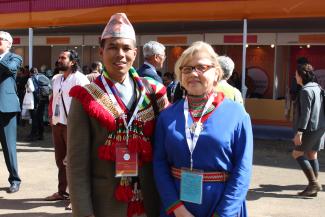
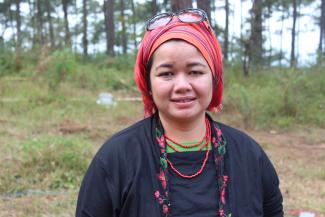
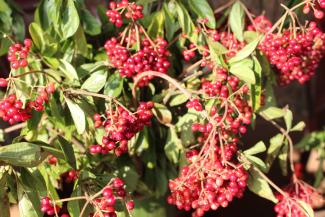
Indigenous Food as Medicine
DAPHNE MILLER
Physician and associate clinical professor at the University of California San Francisco
Our bodies and the soil have very much the same needs. Foods that were traditionally grown together give us a full spectrum of nutrition; they give us whole proteins, very healthy low glycemic starches, and lots of antioxidants. The most important thing is realizing that the way that the foods were grown and the recipes that came from them have their own secret of healthfulness.
Indigenous farmers follow the rules of nature. They farm in a cycle. They have a huge amount of biodiversity within their land, meaning that they use dozens of different kinds of seeds. They conserve water, they prevent erosion, they take care of the soil and allow it to rest, they farm often with animals. They do all these things that are not just organic, they are regenerative. I think that is the system that we need to start to learn from.
Indigenous Pathways for Wellbeing
ELIZABETH HACKER
Researcher and presenter
We did research in Kenya and India about how individuals can create their own frameworks about well being. We found three really important things for Indigenous communities, all interrelated. One is basic needs, the fact that your material needs [must] be met. The second is social harmony, being connected with each other, a sense of belonging. And the third one is a cultural identity. Often we think of our basic needs being met as the precursor to being happy; you need your basic needs to have been met, and then maybe you can experience the feelings of social harmony and cultural identity. Actually what we found is that those three, the cultural identity, social harmony, and basic needs being met, they’re interconnected. You can’t have one without the others.
In Kenya, when we spoke to pastoralists, they not only needed their livestock to meet their basic needs, but a connection to their animals was really essential to their cultural identity. They spoke very emotionally about being connected to their animals, about how the animals were their brothers and sisters, about how this was their life source. Similarly, in terms of social harmony, when pastoralists work together, when agriculturalists work together, this creates a feeling that everyone is in it together. That feeling also helps people meet their basic needs because if you are able to work together, if you have trust in each other, you can also be resilient in times of difficulty.
Food Sovereignty
WINONA LADUKE
Native American environmental activist, economist, and writer
You can’t say that you are sovereign unless you can feed yourselves. As Indigenous people, we have always fed ourselves. We took very good care of ourselves and our families, and the people that came to visit, the Europeans and the colonizers, we fed them too. And now today, we often no longer feed ourselves. We buy their food as we are not doing well. Because of it we are sick, we are fat, we don’t live as long, and we’re not healthy. Food sovereignty is important because it is the restoration of our strength. If we are not held hostage by other people’s food, we can make better decisions. If we are totally dependant on someone else providing us food, providing us money, providing everything for us, we are no longer our own masters.
Food Sovereignty
GRAZIA BORRINI-FEYERABEND
Global coordinator of Indigenous Peoples and Community Conserved Territories and Areas, ICCA Consortium based in Switzerland
Food sovereignty is that the people themselves are the producers and the ones who eat. We have to be involved and in control of those policies and practices. The fact that other people may be in control of the land, the water, and the natural resources impedes our communities to have food sovereignty. We also need to be able to control the forces that control the broader ecosystem on even our conserved territories and areas. We need to be able as a community to say ‘No’ to things that come from the market system, from big enterprises, and sometimes even from excessive bureaucracies by governments. The world would be a better place and people would be better able to control their food and lives if each community could be in control of their territory and the areas in which they live.
Food Security
DHRUPAD CHOUDHURY
The Adaptation to Climate Change and initiative coordinator at the International Centre for Integrated Mountain Development
We did an extensive survey across three countries, India, Bhutan, and Nepal, covering around 90 villages, [and] we found quite a lot of diversity in terms of crops. In terms of food security, there were enough resources, or at least sufficient resources that could meet the nutritional requirements of the people. When you look at the rural communities, accessibility is the main issue. Most of the areas you have to trek, there are no roads. Most of the communities are dependent on themselves. When we look at the larger picture of food security in the context of change, you need to have more crops, or more varieties of crops which are tolerant to the stress which is coming. We need to have more productivity in terms of unique land area.
When you look at [Indigenous Peoples’] practices, many of them are very sustainable. They are dependent on the natural resources which are there. The practices take the philosophy of depending and working with nature. They are not exploiting resources, they are rather harvesting and managing resources. I think this is very important and this is something that modern science has to learn from and strengthen. So what we require is a blend of Indigenous technologies, practices, and knowledge, together with modern sciences.
Slow Food Movement
ANNELI JOHNSON
Slow Food Sapmi from Sweden
Food we eat and produce should be good, clean, and fair. Slow Food Sapmi is the slow food movement within the Sami Indigenous peoples in Sweden, Norway, Finland, and part of Russia.
‘Good’ means good to look at and good to taste; ‘clean’ means it is pesticide free, clean, and natural; and ‘fair’ means it is both fair to the consumer and the producer. This is intricately linked to the endemic crops of the land. So whatever is local is good for us, because Mother Nature has been kind enough to give us what is important for us to battle what we are facing.
Indigenous Terra Madre
PHRANG ROY
Organizing committee member of Indigenous Terra Madre
Indigenous Terra Madre actually started as a part of the slow food movement. The important thing for us is to share ideas together, whatever they are, no matter how small or how big communities may be, and come together and be inspired or be warned from our lessons. The second thing is that we have to let our people become more aware that our local food systems, the way we have cooked in the past, and the edible plants around us, even in the wild, they are more important for us, for our health, than all the medicines that we take. If we are able to convince our people to have pride in their own culture and landscapes and language, I think we will move ahead successfully.
We have a number of challenges: the challenges of lands being taken away, our languages being reduced and marginalized, our culture being absorbed by mainstream activities. We want to highlight to the world that we are a distinct people. It is in the interests of the world and its diversity to maintain this.
Indigenous Food Production Systems
HELIANTI HILMAN NAJIB
Founder and CEO of Javara from Indonesia
If we look into the Indigenous agriculture or food production system, it is based on spiritualism; the way humans interact with the divine really guides how they do the production. It means that we will not harm the soil, will not harm the environment, will not harm the other living creatures around us. It’s also not about the volume of the productivity of their land, but whether the food is being blessed or not. We believe that the food is being blessed by the divine.
Indonesia in the last 30 years has been imposed upon nationally by the green revolutionists, by modern agriculture. And actually, the Indigenous communities are among the lucky ones because they live in remote areas and are not touched by the government programs, so they managed to keep intact their integrity in terms of food sovereignty. In most Indigenous communities, it’s more like a beautiful partnership: harmony among the family members. For example, if you look into the coconut sugar production by the [Indigenous] communities. It’s the husband who climbs the trees, collects the nectars, and the wife is the one who is cooking it and making it into sugar. So it is perfect.
Top Photo: Dev Kumar Sunuwar of Indigenous Media Foundation from Nepal with Anneli Johnson of Slow Food Sapmi from Sweden.
